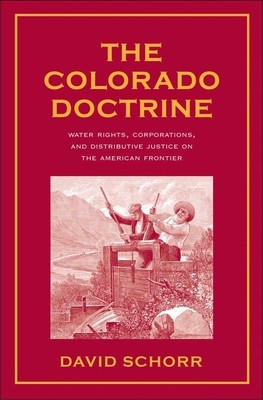
- We will send in 10–14 business days.
- Author: David Schorr
- Publisher: Yale University Press
- ISBN-10: 0300134479
- ISBN-13: 9780300134476
- Format: 15.8 x 23.6 x 2.5 cm, hardcover
- Language: English
- SAVE -10% with code: EXTRA
Reviews
Description
Making extensive use of archival and other primary sources, David Schorr demonstrates that the development of the "appropriation doctrine," a system of private rights in water, was part of a radical attack on monopoly and corporate power in the arid West. Schorr describes how Colorado miners, irrigators, lawmakers, and judges forged a system of private property in water based on a desire to spread property and its benefits as widely as possible among independent citizens. He demonstrates that ownership was not dictated by concerns for economic efficiency, but by a regard for social justice.
EXTRA 10 % discount with code: EXTRA
The promotion ends in 10d.23:32:22
The discount code is valid when purchasing from 10 €. Discounts do not stack.
- Author: David Schorr
- Publisher: Yale University Press
- ISBN-10: 0300134479
- ISBN-13: 9780300134476
- Format: 15.8 x 23.6 x 2.5 cm, hardcover
- Language: English English
Making extensive use of archival and other primary sources, David Schorr demonstrates that the development of the "appropriation doctrine," a system of private rights in water, was part of a radical attack on monopoly and corporate power in the arid West. Schorr describes how Colorado miners, irrigators, lawmakers, and judges forged a system of private property in water based on a desire to spread property and its benefits as widely as possible among independent citizens. He demonstrates that ownership was not dictated by concerns for economic efficiency, but by a regard for social justice.


Reviews